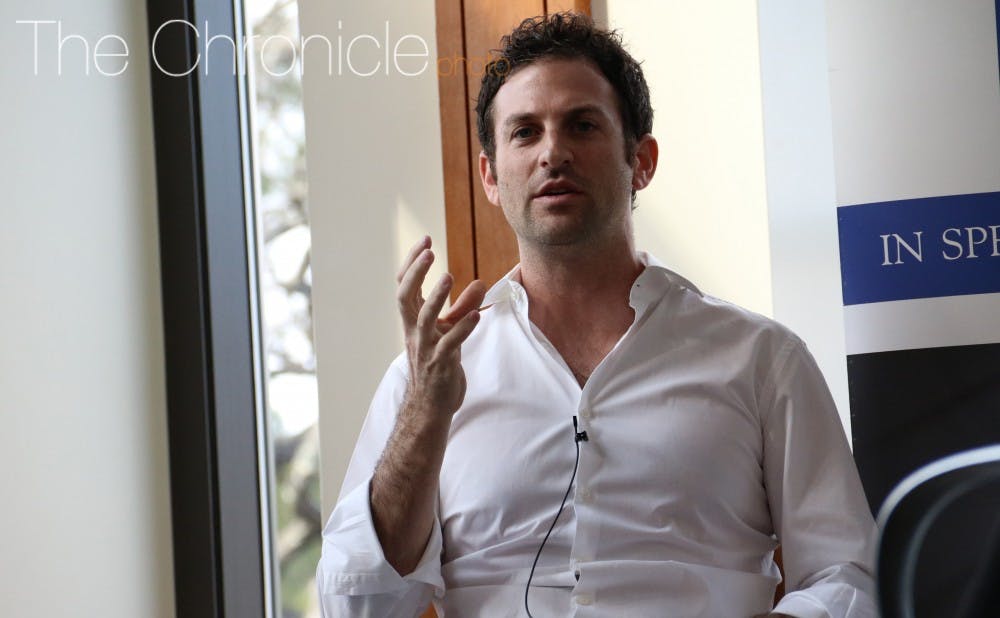Cybersecurity expert Jared Cohen outlined how online attacks can influence global politics during a talk Tuesday.
Currently the president of Jigsaw—a Google spinoff dedicated to tackling global security challenges and cyber attacks—Cohen has served in the State Department for former presidents George W. Bush and Barack Obama.
At the center of his discussion, Cohen addressed the allegations of Russian hacking the 2016 U.S. presidential election. He mentioned that the type of “hacking” connected to the election is different from the standard notion of breaking into a computer or a other electronic device.
“I really don’t think that a country like Russia or any other country trying to hack an election would really double down on hacking the machines,” he said. “The type of hacking that we don’t understand as well is the hacking of the conversation and hacking of the discourse, and that’s what meddling in our election looked like.”
Cohen cautioned against being too focused on Russia's alleged hacking of the 2016 election, suggesting that other hacker groups may also be infiltrating the U.S.
“I can name 12 countries that are using the same tactics [as Russia], some better than others,” he said. “I think there’s a risk of becoming so hyper-focused on U.S. and Russia that we miss how many countries around the world are engaging in these digital insurgencies.”
Cohen noted that the "social" type of hacking which influenced the U.S. elections includes "patriotic trolling"—when cyberbullying becomes better organized and state-sponsored.
Certain governments, including that of Turkey, fund this kind of program to discourage journalists and dissidents who are critical of the current administration, Cohen said. This effectively removes online criticism of the government.
He also discussed conversation hacking, often referred to as fake news. Although conversation hacking is arguably the hardest to solve, the use of fake news does not have as large an effect as people may believe.
“What we’re seeing is the waging of digital insurgencies where those same trolls that are on government payroll each manage automated trolls of several thousand, and they all follow each other,” Cohen said. “Long story short, you end up with a diverse army of trolls that all have hundreds of thousands of followers.”
Together, these online trolls—who often appear to be diverse and unrelated based on their profiles—work to direct the political conversation toward whatever issue they choose, he explained.
“The challenge with technology and the challenge with these cyber wars is because attribution is so difficult, it challenges all of our assumptions,” Cohen said.
By the time that the true identity of a hacker is discovered, he noted, it may no longer be worth retaliating against them.
But there are ways to fight back against hacking, Cohen explained. Jigsaw and Google launched a new product Tuesday called Protect Your Election, a series of products designed to help journalists and electoral officials stay safe from online attacks.
In light of a recent Wikileaks release of Central Intelligence Agency tactics, Cohen also touched on the debate between security and privacy, expressing concern about current policies.
“I worry that the enormous amount of gray area and the lack of precedent will make it too easy to overreach, and once you do that, it’s hard to go back,” he said.
He explained that a national disaster, such as the September 11 terrorist attacks, can make it easier for the government to infringe on people’s rights. Once this additional security is in place, it is difficult to return to a less-invasive society.
“Nobody wants to be the person who undoes it and gets it wrong,” Cohen said.
Get The Chronicle straight to your inbox
Signup for our weekly newsletter. Cancel at any time.

